One of the most groundbreaking technologies at the forefront of this transformation is Conversational AI, a form of artificial intelligence that is revolutionizing sales processes. Businesses worldwide are leveraging AI for Sales to streamline processes like cold calling, lead qualification, lead scoring and appointment setting, helping to supercharge sales teams and close more deals. As we look to the future, it’s clear that Sales AI will play a critical role in reshaping how sales teams operate, enhancing their productivity and giving them a significant competitive advantage.
What is Conversational AI?
At its core, Conversational AI refers to technologies like chatbots or voice assistants that interact with users in a human-like manner. But modern conversational AI has advanced far beyond simple responses and FAQ bots. Today’s sales AI systems are equipped to handle complex sales conversations too, making them invaluable tools for sales teams, especially when it comes to lead qualification, appointment setting, and even discovery calls.
Conversational AI optimizes the sales process through automation and personalized action plans, enhancing various aspects of sales strategies and operations.
Conversational AI uses predictive analytics to anticipate customer needs and improve sales outcomes.
Conversational AI leverages natural language processing (NLP) and machine learning to understand customer queries, interpret context, and provide intelligent, relevant responses. It operates on multiple channels, including phone calls, messaging apps, emails, and websites, ensuring round-the-clock engagement with leads and customers.

Benefits of Conversational AI in Sales
Conversational AI offers a multitude of benefits that can revolutionize the way sales teams operate. One of the most significant advantages is the improvement in customer interactions. By leveraging AI-powered tools, sales teams can provide personalized and efficient support, leading to higher customer satisfaction and loyalty. Imagine a scenario where a customer receives instant, relevant responses to their queries, enhancing their overall experience with the brand.
Increased sales productivity is another major benefit. Conversational AI automates routine tasks, such as data entry and follow-ups, allowing sales reps to focus on high-value activities like closing deals. This shift not only boosts productivity but also ensures that sales professionals can dedicate more time to building relationships and understanding customer needs.
Enhanced conversation intelligence and customer insights are also a game-changer. Conversational AI can analyze vast amounts of customer data to uncover valuable insights about customer preferences and behavior. This information enables sales teams to tailor their approach, making interactions more relevant and effective. Additionally, Conversational AI can assist in customer segmentation to tailor sales approaches more effectively, ensuring that specific customer groups receive the most relevant offers and communications.
Manual data entry is often a tedious and error-prone task. Conversational AI can automate this process, ensuring that CRM data is accurate and up-to-date. This automation frees up sales teams to concentrate on strategic activities that drive revenue growth.
Lastly, improved sales forecasting is a critical benefit. By analyzing historical sales data and current trends, Conversational AI can provide accurate forecasts, helping sales leaders make informed decisions and optimize their strategies. This predictive capability ensures that sales organizations are always a step ahead, ready to seize new opportunities.
Sales AI Strategy for Success
A successful sales AI strategy involves aligning AI tools with your sales process, leveraging customer data to personalize interactions, and automating routine tasks to free up time for high-value activities. By implementing a well-planned sales AI strategy, businesses can improve sales performance, enhance customer satisfaction, and drive revenue growth.
To develop a sales AI strategy, start by identifying areas where AI can add value to your sales process. This may include lead generation, sales forecasting, and customer interactions. Next, choose AI tools that integrate with your CRM data and customer data to provide personalized insights and recommendations. Finally, train your sales team on how to effectively use AI tools to enhance their sales performance.
For instance, AI can streamline lead generation by quickly identifying and qualifying potential leads based on predefined criteria. This ensures that your sales team focuses on high-quality prospects, increasing the chances of conversion. Additionally, AI-powered sales forecasting can analyze historical data and current trends to provide accurate predictions, helping sales leaders make informed decisions and optimize their strategies.
By leveraging customer data, AI tools can personalize interactions, making each customer feel valued and understood. This personalized approach not only improves customer satisfaction but also builds stronger relationships, leading to long-term loyalty and revenue growth.

Conversational AI in Sales: Transforming the Sales Process
1. Cold Calling and Lead Qualification
Cold calling has long been a cornerstone of sales outreach, but it is often time-consuming and inefficient. Reps can spend hours dialing prospects, leaving voicemails, and chasing leads who are not a fit for their offering. Conversational AI for Sales eliminates much of this manual effort by automating initial contact with leads, conducting cold calls, and immediately qualifying prospects based on pre-defined criteria. Additionally, AI can analyze and improve the performance of these sales calls, providing insights and feedback that can be used for training and optimization.
Conversational AI can use lead scoring to prioritize leads based on their potential value, ensuring that sales reps focus on the most promising prospects first.
For instance, when a potential customer fills out a lead form on a company website, Conversational AI can instantly make a follow-up call—before competitors have a chance to react. This lightning-fast response not only increases the likelihood of converting the lead but also demonstrates to the prospect that the company values their inquiry.
2. Automating Appointment Setting
One of the key advantages of Conversational AI in Sales is its ability to seamlessly make sales pitches and set up meetings on behalf of the sales team. Traditionally, sales reps have to navigate back-and-forth emails or phone calls to align schedules and lock in appointments. This process can be cumbersome and prone to delays, especially when managing multiple leads.
Conversational AI eliminates this friction by automating the appointment-setting process. When a qualified lead is identified, the AI agent can immediately check the sales rep’s availability and propose times for a meeting, whether in person or via Zoom. Additionally, Conversational AI can analyze customer sentiment to determine the best times for appointments, ensuring higher engagement and readiness. The prospect can then confirm the meeting time, and the AI syncs it directly to the sales rep’s calendar.
This automation ensures that no potential lead falls through the cracks due to human error or missed opportunities, keeping the sales pipeline moving smoothly.
3. Lead Nurturing and Discovery Calls
Discovery calls are a crucial part of the sales funnel, offering a chance to uncover a prospect’s specific needs and determine if there’s a fit. However, scheduling and managing these calls manually can be time-consuming, and missed follow-ups can lead to lost opportunities.
Sales AI takes the guesswork out of lead nurturing by conducting initial discovery calls autonomously. AI can ask qualifying questions, gather data on customer pain points, and log critical insights from customer conversations into the CRM system. If the conversation reveals that the lead is not ready to buy, the AI can nurture the relationship over time, periodically checking in and offering relevant information, ensuring the lead stays warm until they are ready to make a purchase.
The AI-driven discovery process helps sales teams focus only on highly qualified, ready-to-buy leads while maintaining engagement with prospects who may not be ready yet, but could become valuable clients in the future.
Filling Sales Reps' Calendars with Appointments
A major benefit of implementing Conversational AI in a sales organization is its ability to continuously fill a closer’s calendar with valuable appointments. High-performing sales reps, or “closers,” are often overwhelmed with administrative tasks and managing their schedules. Sales AI steps in to keep their calendars filled with qualified, high-priority meetings, allowing them to spend more time on revenue-generating activities. Conversational AI can automate routine tasks, ensuring that sales reps' calendars are consistently filled with high-priority meetings.
Sales reps no longer have to manually follow up with cold leads or chase down appointments. The AI handles the entire process— from initial outreach to booking meetings—ensuring that every prospect they meet is pre-qualified and ready to engage in meaningful conversations.
The Role of AI in Sales Calls
AI plays a significant role in sales calls by providing real-time insights and recommendations to sales reps. AI-powered tools can analyze customer data, sentiment, and behavior to predict the likelihood of a sale and provide personalized suggestions for improving the sales call. Additionally, AI can automate routine tasks such as data entry and follow-up emails, freeing up time for sales reps to focus on high-value activities.
During sales calls, AI can help sales reps to:
Identify key decision-makers and influencers
Analyze customer sentiment and behavior
Provide personalized product recommendations
Predict the likelihood of a sale
Automate follow-up emails and tasks
Imagine a scenario where a sales rep is on a call with a potential customer. The AI tool can analyze the customer’s tone and sentiment in real-time, providing the rep with insights into the customer’s mood and engagement level. This allows the rep to adjust their approach accordingly, making the conversation more effective and increasing the chances of closing the deal.
Moreover, AI can identify key decision-makers within the customer’s organization, enabling the sales rep to tailor their pitch to the right audience. By providing personalized product recommendations based on the customer’s needs and preferences, AI ensures that the sales call is relevant and impactful.
By leveraging AI in sales calls, businesses can improve sales performance, enhance customer satisfaction, and drive revenue growth.

Top AI Tools for Sales Teams
Several AI tools stand out for their ability to enhance sales processes and drive results. Salesforce Einstein is a powerful suite of AI-powered tools that offers predictive analytics, personalized recommendations, and automated workflows. It integrates seamlessly with Salesforce CRM, providing sales teams with actionable insights and streamlined processes.
HubSpot is another excellent platform that uses AI to deliver personalized customer experiences, automate workflows, and analyze sales data. Its user-friendly interface and robust features make it a popular choice for sales and marketing teams.
Drift is a conversational AI platform designed to automate customer interactions and provide personalized support. It helps sales teams engage with prospects in real-time, enhancing customer engagement and driving conversions.
Gong.io offers real-time insights and automated workflows, making it a valuable tool for sales teams. Its AI-powered platform provides personalized coaching and actionable recommendations, helping both sales managers and reps improve their performance.
Mixmax is a sales engagement platform that uses AI to personalize email and messaging, automate workflows, and analyze sales data. Its features are designed to enhance productivity and drive better sales outcomes. Generative AI can create personalized responses and insights based on previous interactions, further enhancing the capabilities of these tools.
Improving CX with Conversational AI
Conversational AI can significantly enhance customer experience (CX) by providing personalized support tailored to each customer’s needs and preferences. Imagine a customer receiving instant, relevant recommendations based on their previous interactions and purchase history. This level of personalization can build stronger relationships and increase customer loyalty.
Automating routine tasks is another way Conversational AI improves CX. By handling repetitive tasks, AI frees up sales teams to focus on high-value activities, such as strategic support and relationship building. This shift ensures that customers receive timely and thoughtful responses, enhancing their overall experience.
Analyzing customer behavior is a powerful capability of Conversational AI. By examining patterns and trends, AI can provide valuable insights into customer needs and preferences. Sales teams can use this information to tailor their approach, making interactions more relevant and effective. Additionally, Conversational AI can detect and address negative sentiment, allowing businesses to promptly resolve issues and improve customer satisfaction.
Enhancing customer engagement is also a key benefit. Conversational AI enables personalized messaging, automated workflows, and real-time insights, all of which contribute to a more engaging customer experience. Customers feel valued and understood, leading to higher satisfaction and loyalty.
Reducing response times is critical in today’s fast-paced sales environment. Conversational AI can automate routine tasks and provide real-time insights, ensuring that customers receive prompt responses to their inquiries. This speed not only improves CX but also increases the likelihood of conversion.

Best Practices for Conversational AI
To maximize the benefits of Conversational AI, sales teams should start small with a pilot project. This approach allows you to test and refine your strategy before scaling up. Focus on a specific use case, such as lead qualification or appointment setting, and measure its impact.
Customer needs should always be at the forefront of your Conversational AI strategy. Ensure that your approach is designed to meet customer needs and improve their experience. This customer-centric focus will drive better results and build stronger relationships.
Regularly monitor and evaluate the performance of your Conversational AI strategy. Use key metrics to assess its impact and make necessary adjustments. This continuous improvement will keep your strategy aligned with evolving business needs and technological advancements.
Provide ongoing training and support to your sales teams. Equip them with the knowledge and skills needed to effectively use Conversational AI and maximize its benefits. This investment in your team will ensure smooth adoption and optimal sales performance throughout.
Finally, continuously refine and improve your Conversational AI strategy based on customer feedback, sales data, and emerging market trends. Stay agile and open to new technologies and approaches, ensuring that your strategy remains effective and competitive.
By following these best practices, sales teams can harness the full potential of Conversational AI, driving better results and enhancing customer experience.
The Competitive Advantage of Speed: Instant Lead Generation and Follow-Up
In today's fast-paced sales environment, timing is everything. Prospects are often shopping around, and the first company to respond is more likely to win their business. A delay in following up with a lead can result in losing them to competitors.
Conversational AI enables sales teams to respond to prospects instantly—especially when prospects fill out lead forms. The AI system can initiate a callback within seconds, giving companies a critical edge over competitors who are still relying on slower, manual processes. The ability to act quickly not only enhances the lead experience but also significantly increases the likelihood of conversion.

Future Trends in Conversational AI for Sales
As Sales AI technology continues to evolve, we can expect even more powerful integrations with sales tools and CRMs. Artificial intelligence will continue to evolve and integrate with sales tools and CRMs, by automating repetitive tasks and optimizing sales activities, improving customer interactions, and assisting in data-driven decision-making. AI systems will become better at analyzing large sets of data to predict prospect behavior, prioritize leads, and recommend the next best actions for sales reps.
The integration of AI for Sales will increase sales and also enable businesses to scale their operations more efficiently, reducing the reliance on human resources while increasing the volume and quality of leads entering the sales funnel.
To truly capitalize on the benefits of Conversational AI, SalesMind.ai stands out as the best tool to automate and optimize your sales process. From instant lead follow-up to seamless appointment setting, SalesMind.ai is designed to handle everything a modern sales team needs to be successful. Its AI-driven technology can make cold calls, qualify leads, and set appointments with unmatched efficiency—filling sales reps’ calendars with pre-qualified, high-value leads. The platform’s ability to engage prospects immediately after they fill out a lead form ensures that you are always first to respond, giving you a competitive advantage over slower, manual processes.
One of the key benefits of using Sales AI tools like SalesMind.ai is the ability to automate sales forecasting and improve the accuracy of lead scoring. By analyzing historical data and real-time data from CRM systems, these AI-powered tools can predict customer behavior, helping sales managers and sales professionals make data-driven decisions. This not only improves conversion rates but also ensures that sales teams are focused on the most qualified leads. SalesMind.ai integrates seamlessly with your existing tech stack, enabling sales organizations to gain valuable insightsinto customer conversations, which can drive deals forward and enhance overall sales performance.
Moreover, SalesMind.ai provides sales leaders and sales reps with real-time coaching and actionable feedback during sales calls. It uses conversation intelligence to track customer meetings, offering real-time insights and ensuring that sales reps are engaging with customers in meaningful ways. By automating boring tasks like manual data entry and routine tasks, AI tools free up reps to focus on customer segmentation, crafting personalized sales pitches, and delivering more engaging customer experiences. This blend of artificial intelligence and human touch helps to increase customer satisfaction while driving better results for sales organizations.
Beyond automating routine tasks, SalesMind.ai also taps into generative AI to enhance customer engagement. Generative AI creates personalized responses and insights based on previous interactions, ensuring that each customer feels heard and understood. This technology not only improves the quality of customer conversations but also allows sales teams to address negative sentiment and adjust their approach in real-time. By embracing AI, sales teams can automate repetitive tasks like appointment scheduling and follow-ups, while still maintaining the human touch that is essential for building long-term relationships with customers.
Incorporating SalesMind.ai into your sales strategy gives your sales organization a competitive edge by providing real-time data, actionable insights, and enhancing rep performance. With AI tools now able to analyze market trends, assess customer sentiment, integrate with your CRM and provide relevant information during sales conversations, sales teams can make more informed decisions, ultimately leading to improved conversion rates and stronger customer relationships. For sales teams looking to embrace the future of sales, SalesMind.ai offers a powerful tool to transform how they interact with customers and optimize their overall sales process.
